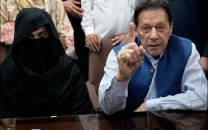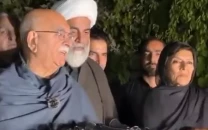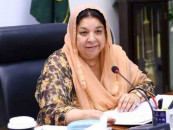Giving Kashmir an MFN chance
According India MFN status will strengthen the hands of Indian peaceniks like Omar Abdullah.

Giving Kashmir an MFN chance
Now, the AFSPA’s decision has been taken after Delhi carefully monitored the decline in the deaths of both militants and victims over the last few years. It’s a welcome Diwali gift to all those who survived the gun as well as the dreaded fear that flowed from its barrel these several decades.
Perhaps the story of Kashmir will never be written, especially as both India and Pakistan continue to strut out their stuff. How and why did Pakistan’s ISI insinuate itself into believing that ‘a thousand cuts’ will bleed India slowly from within? How did India, in the name of fighting militancy inspired from across the border, begin a war against its own people?
That dreaded phrase ‘collateral damage,’ which essentially means that innocent men, women and children simply suffered because the two countries fought their battles, has been bleached into the valley’s soil and changed the colours of its lakes and rivers.
Finally, it seems, Kashmir may be able to breathe at least a small sigh of relief.
Sadly, the sense of limited normalcy — which saw the return of 1.1 million tourists to that heaven on earth this summer, the highest in these two decades — is being contested in Islamabad as political parties join hands to tie down the PPP-led government, in the name of Kashmir.
If you don’t get the linkage, here it is: Over the last week, Nawaz Sharif’s party as well as Maulana Fazlur Rahman have spoken against the Pakistan government’s decision to grant Most Favoured Nation (MFN) trading status to India if there is no movement on Kashmir.
Now MFN is a common trade courtesy every nation who is a member of the World Trade Organisation (WTO) must accord to each other. Since India and Pakistan are both WTO members, Islamabad’s refusal to grant MFN — which it now wants to amend — means it has been in violation of WTO rules so far.
Perhaps the Urdu translation of the English-inspired Most Favoured Nation sounds like one is performing an act of intimacy upon the other country — in this case, India.
It would be tragic, indeed, if movement on achieving the MFN status were to be slowed down, especially as India, despite the David Headley revelations, has come to the conclusion that it must improve relations with the people of Pakistan, if not its governments.
That is why Delhi has used the economic card to break new political ground, and Islamabad has fortunately responded.
That is why, after meetings of the commerce secretaries with Hina Rabbani Khar and Mohamamed Amin Fahim over the year, the two commerce secretaries will meet again in mid-November. They hope to sign on the dotted line.
Meanwhile, Delhi has lifted its objections to the European Union proposal of taxing goods from Pakistan. It is also contemplating removing its own tariff quotas on textile imports from Pakistan — frankly, the only sector in which Pakistan is competitive with India.
Let’s face it, Pakistan’s economy is going south. Denying MFN to India will only mean that Pakistan is denying its own businessmen the right to resume normal trading relations with India, thereby denying them the right to create wealth for Pakistan.
According India MFN status, on the other hand, will strengthen the hands of Indian peaceniks like Omar Abdullah. And give Kashmir a greater chance to restore itself.
Published in The Express Tribune, October 25th, 2011.



















COMMENTS
Comments are moderated and generally will be posted if they are on-topic and not abusive.
For more information, please see our Comments FAQ